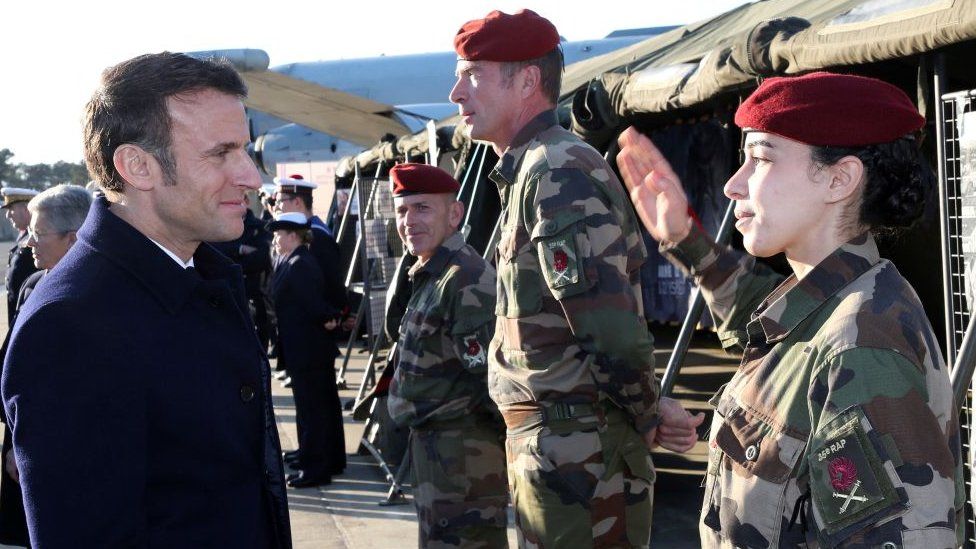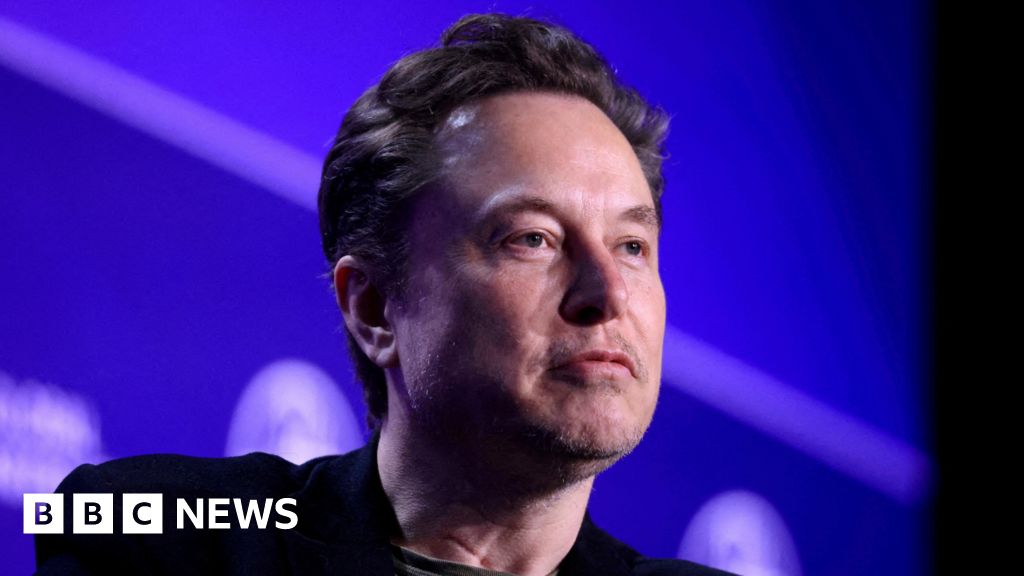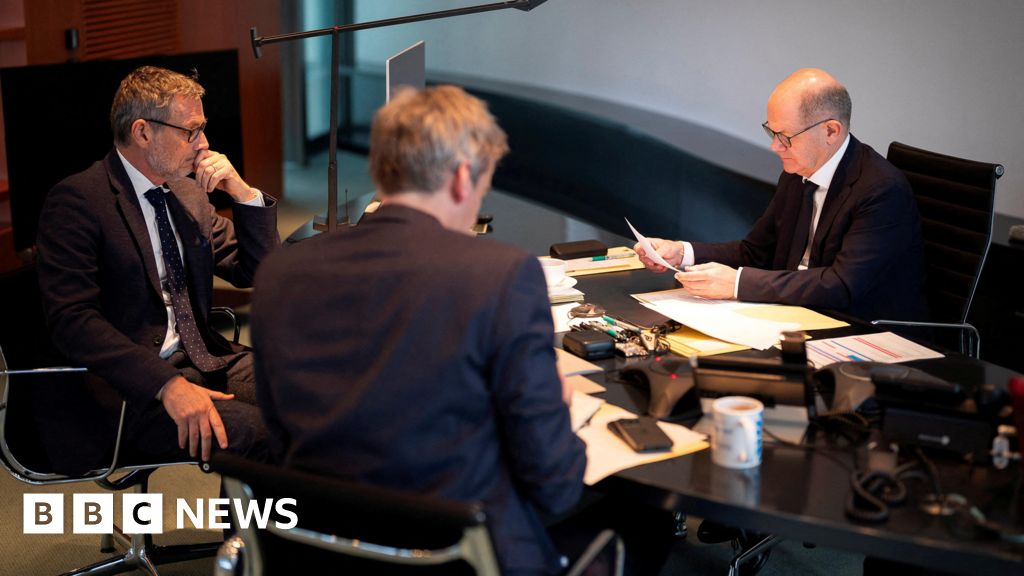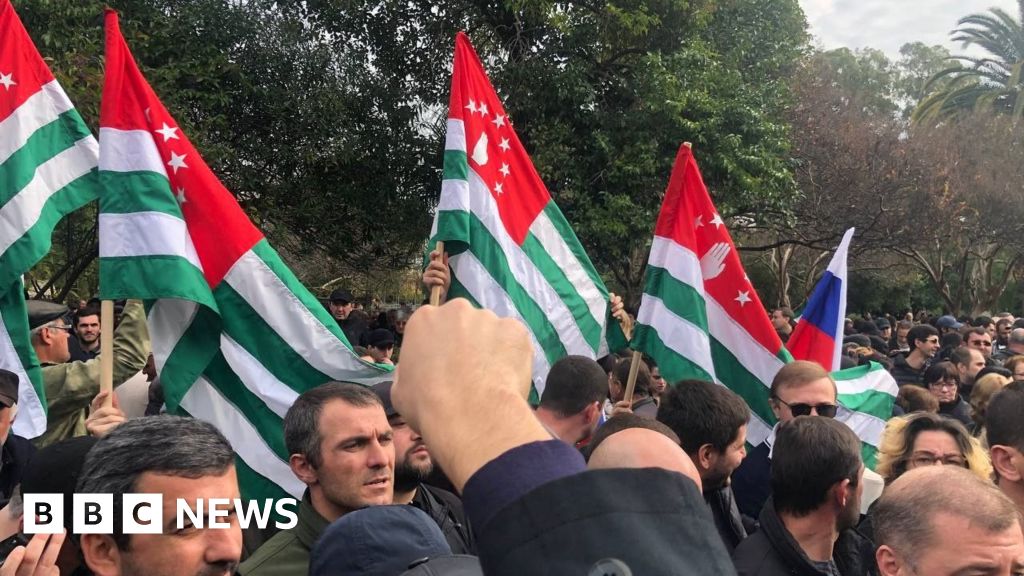ARTICLE AD BOX
 Image source, Getty Images
Image source, Getty Images
President Macron gave details of his proposals to refocus the French military at an airbase in south-west France
French President Emmanuel Macron has detailed plans for a major boost to the armed forces, to meet modern threats including Russia's war in Ukraine.
The next seven-year budget would increase to €413bn (£360bn) from 2024-30, up from €295bn, he said.
First France had to repair and restock its armed forces, then transform them, he told soldiers at Mont-de-Marsan airbase in south-west France.
"We must not do the same with more, we have to do better and differently."
Russia's invasion of Ukraine has prompted Western countries to review military spending - and in many cases, increase it significantly.
Meanwhile, the Kremlin has outlined plans to increase the number of combat soldiers from 1.15 million to 1.5 million. President Vladimir Putin said this week that Russia's powerful defence industry left him in no doubt that victory in Ukraine was assured.
President Macron acknowledged on Friday there were no more post-Cold War "peace dividends" now that Russia had invaded Ukraine, so the aim was to renew a military that protected France's freedom, security, prosperity and place in the world.
Key to his reforms are a 60% hike in the military intelligence budget, adapting to "high-intensity" conflict with investment in drones, cyber-defence and improved air defences.
"We need to be one war ahead," he warned.
France's failure to foresee the Russian invasion last February cost the head of military intelligence, Gen Eric Vidaud, his job. The armed forces chief admitted at the time that US and UK intelligence had read the situation correctly.
France has stepped up its military aid for Ukraine in recent weeks, with plans to send AMX-10 RC "light combat tanks", but its supply of weapons to Kyiv is seen as lagging behind other European allies.
Last year, France ended an eight-year anti-jihadist operation in the Sahel region of Africa in what was widely seen as a failure.
President Macron said France would have to rethink its alliances while remaining a leader in Europe and a reliable Nato ally, and deepening its relationships with Germany, the UK, Italy and Spain.
The Russian war has changed defence priorities across Europe, with Sweden and Finland announcing steep increases in their military budgets as part of their bid to join Nato. Members of the Western military alliance have agreed to spend at least 2% of economic output on defence from 2024.
Days after the invasion in February 2022, Germany pledged an extra €100bn of the budget to the armed forces.
In June, the UK promised under previous Prime Minister Boris Johnson to increase spending to 2.5% of GDP.
Last month, Japan announced a dramatic rise in its defence budget, because of what Prime Minister Kishida Fumio warned was the "most severe and complex security environment since World War Two". It cited threats from China and North Korea.

 1 year ago
15
1 year ago
15








 English (US)
English (US)